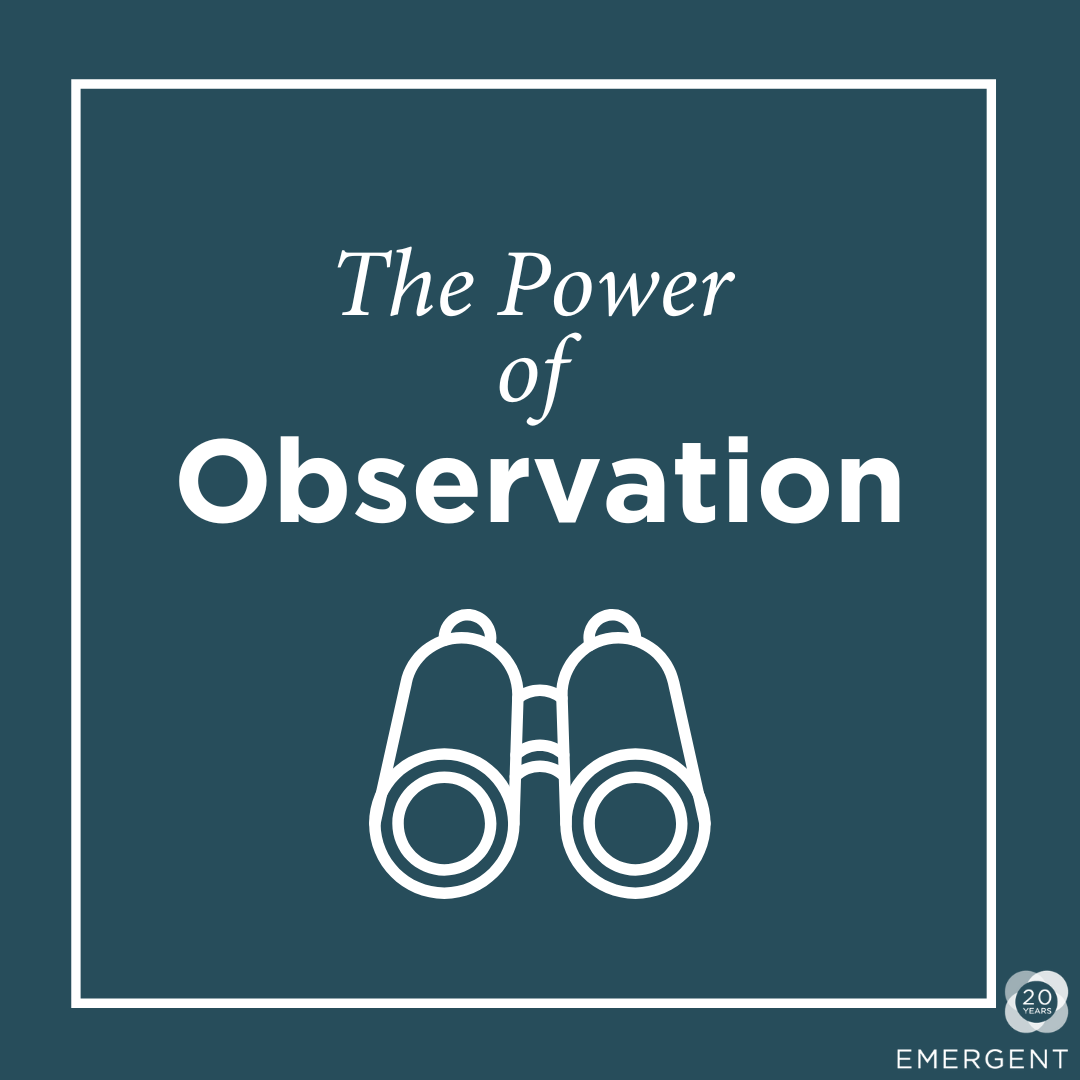Long ago, I was having a conversation with the CEO of an organization and asked him a question: What is your most important leadership trait, the one you rely on the most? He answered with a question, asking if he could avoid the “obvious answers” like trust, honesty, loyalty, purpose, and clear communication. I was immediately intrigued and obliged his qualifying question, thanking him for his openness before hearing his unconventional answer.
He said that the role of the observer is his most treasured leadership trait. Noticing, listening, watching, and sensing were, to him, highly valuable leadership activities. Observation was crucial to his leadership presence.
This resonated very strongly with me on a personal level. I fancy myself an observer in many areas of my life, but until this conversation, I had never categorized this “life skill” as a leadership trait. In hindsight, I recognize that these small reframes can have a profound impact on people, especially in the case of an activity as ubiquitous as observation. We all do it, often without being consciously aware; I believe that merely recognizing its importance has had huge effects on my leadership, and might do the same for you!
Let’s define the term. Per Wikipedia, “Observation in the natural sciences is an act or instance of noticing or perceiving and the acquisition of information from a primary source. In living beings, observation employs the senses.”
In other words, observation is a gathering process, the result of being present and attentive to the environment you inhabit. Opportunities to observe are truly infinite. Think of employee interactions, team meetings, and presentations. On the surface, these interactions transmit information. But the keen observer can learn a great deal about culture, conflict, motivation, and purpose by paying attention to the context and manner in which these interactions take place. This even extends to the observer’s internal environment. Mindfulness – awareness of one’s physical, mental, emotional, and spiritual presence – is a process of self-observation!
The key to leadership observation success is twofold. First, the observant leader must take the strategic pauses necessary to really see, hear, and feel what’s happening in their environment. Observation cannot be hurried. As reality unfolds in all its complexity, leaders must be able to bring their full awareness to the present moment, incorporating all their senses and sensitivities so that a three-dimensional understanding can be developed.
Second, observant leaders must be non-judgmental. We want to be able to “take it all in” and process what we see, hear, feel, and sense without jumping to conclusions. The observer cannot bring their own prejudices and preconceived notions to the observation process, because these will cloud the senses and distort reality. Remember, observation is a process of gathering; we must take the world as it is given in order to come to an accurate understanding of the situations, people, and relationships around us. Eventually, we might be called to make a decision, in which case we will need to exercise our judgment. But by suspending judgment until the end of the process, we leave ourselves open enough to see things as they are.
It can be quite humbling to start observing what we’ve been missing along the way. A dear old neighbor used to take my son for “listening tours” around our large backyards. My son would come back with reports about birds he heard, or vivid descriptions of the way the wind sounded in the trees. He noticed that the shed out back creaked when the wind blew swiftly and that the door on the shed made a bumping sound. He observed sounds that would have otherwise been part of the background–sounds I heard nearly every day but rarely, if ever, actually noticed.
What are we missing as leaders by forgetting the power of observation? What might we learn about our organizations with some observation experiments?
We coach and train leaders in observation skills including developing the mindsets of leaders, learning advanced listening, and practicing powerful questioning. Let me know if you’d like to learn more by reaching directly out to me at [email protected].

Comments (0)